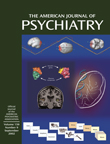Myocarditis With Quetiapine
Mr. A, a 35-year-old man with paranoid schizophrenia, was admitted to a psychiatric hospital for the first time. Initially, he was medicated with benperidol and lorazepam, which led to the remission of acute psychosis. He developed extrapyramidal symptoms, and quetiapine, 800 mg/day, was introduced. On admission, a first-degree atrioventricular block and an incomplete right bundle-bunch block were diagnosed. No history of heart disease or cardiac risk factors was found.During Mr. A’s first 2 months of monotherapy with quetiapine, 600 mg/day, mild eosinophilia (6% eosinophilia cells), thrombocytopenia (138 platelets/nl), and leukopenia (3.9 leukocytes/nl) developed. In the next 2 months, when Mr. A was still taking quetiapine without concomitant medications, a routine workup revealed high levels of creatinine kinase (107 U/liter), troponin (7.9 mg/liter), and C-reactive protein (75.9 mg/liter). In the last 4 days before the increase in his creatinine kinase level, Mr. A had a temperature of 37.8°C and reported nasal congestion with watery discharge, fatigue, and myalgia in the absence of chest pain.Myocarditis was diagnosed on the basis of transient and ubiquitous ST wave elevation on ECG and elevation of cardiac enzyme levels. Nevertheless, myocardial infarction could not entirely be ruled out in the absence of catheterization. Mr. A’s ECG showed normal global pump function and no pericardial effusion; long-term ECG revealed no arrhythmia.Since the origin of Mr. A’s myocarditis was unknown, quetiapine therapy was immediately withdrawn. He was treated with metoprolol, 10 mg/day, and ramipril, 2.5 mg/day. A decrease in Mr. A’s levels of troponin and creatinine kinase was observed in the next 4 days, and he was considered cardiologically stable. Within 2 weeks after discontinuation of quetiapine, his eosinophilia, thrombocytopenia, and leukopenia resolved. Amisulpride was initiated without recurrence of psychiatric or cardiac symptoms.
References
Information & Authors
Information
Published In
History
Authors
Metrics & Citations
Metrics
Citations
Export Citations
If you have the appropriate software installed, you can download article citation data to the citation manager of your choice. Simply select your manager software from the list below and click Download.
For more information or tips please see 'Downloading to a citation manager' in the Help menu.
View Options
View options
PDF/EPUB
View PDF/EPUBGet Access
Login options
Already a subscriber? Access your subscription through your login credentials or your institution for full access to this article.
Personal login Institutional Login Open Athens loginNot a subscriber?
PsychiatryOnline subscription options offer access to the DSM-5-TR® library, books, journals, CME, and patient resources. This all-in-one virtual library provides psychiatrists and mental health professionals with key resources for diagnosis, treatment, research, and professional development.
Need more help? PsychiatryOnline Customer Service may be reached by emailing [email protected] or by calling 800-368-5777 (in the U.S.) or 703-907-7322 (outside the U.S.).

